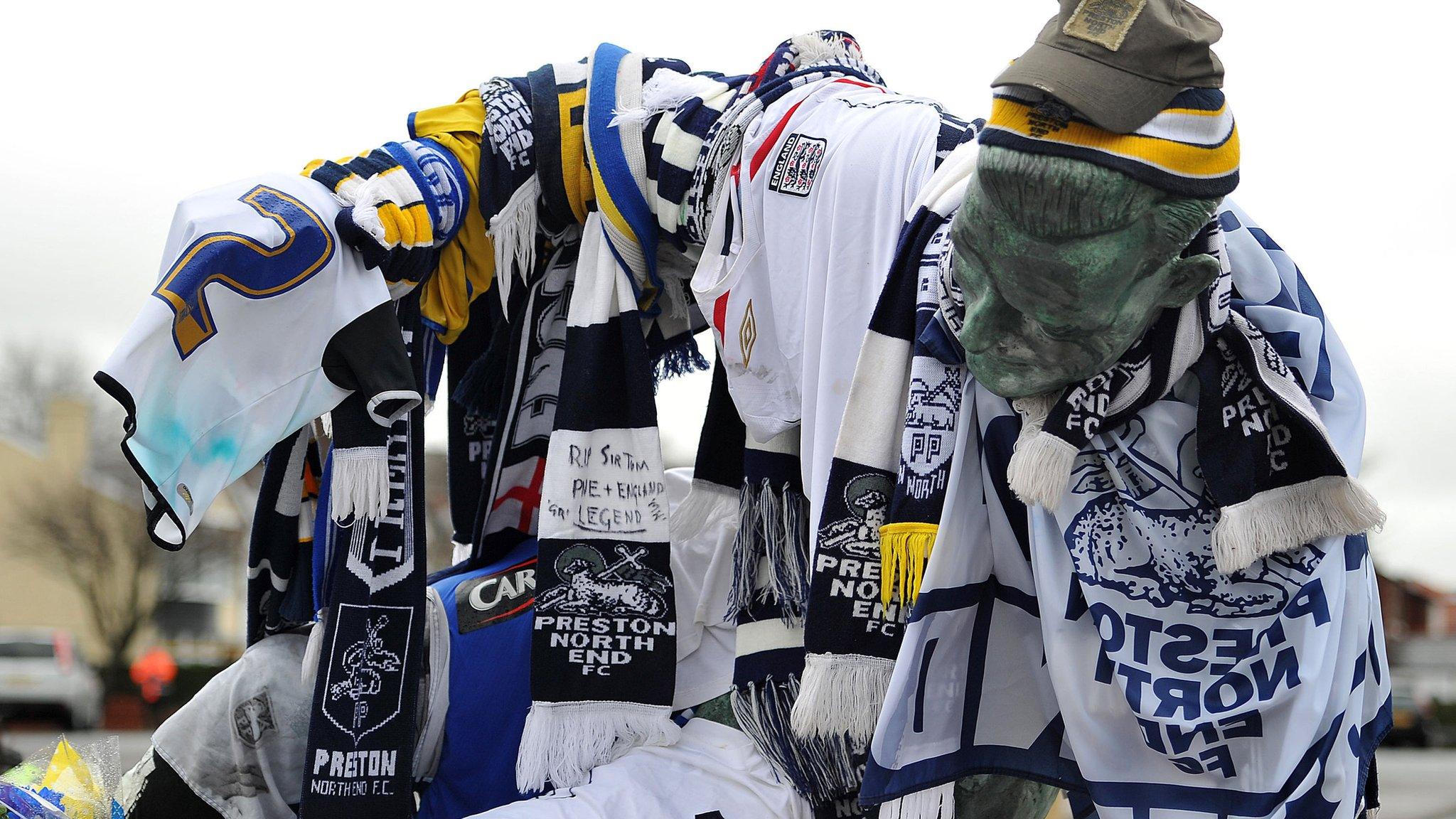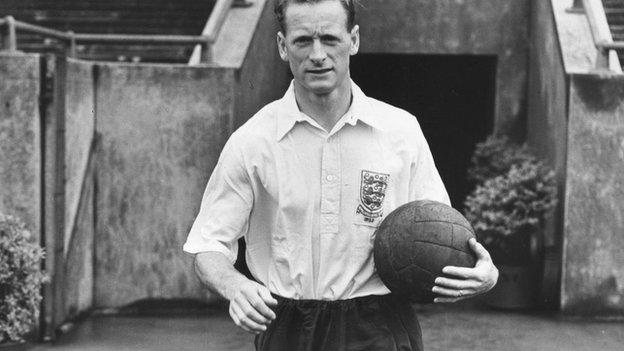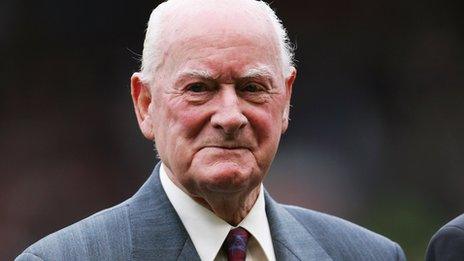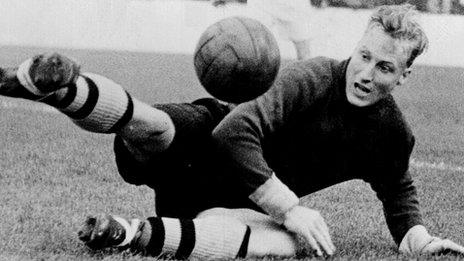Sir Tom Finney: Former Preston and England winger dies at 91
- Published
- comments
Former Preston and England winger Sir Tom Finney has died at the age of 91.
Finney made more than 400 league appearances for Preston North End between 1946 and 1960 and won 76 caps for England.
He scored 30 goals for England, placing him joint sixth on the all-time list with Alan Shearer and Nat Lofthouse.
A Preston statement said:, external "Sir Tom was the greatest player to ever play for Preston North End and one of the all time greats for England."
Preston are due to play Leyton Orient in League One on Saturday at Deepdale.
The statement added: "Preston North End have been informed of the extremely sad news of the passing of Sir Tom Finney.
"The thoughts of everyone at the club, and those connected with it, are with his family at this time."
The Football Association tweeted:, external "The FA is saddened to hear of the passing of Sir Tom Finney, one of England's all-time greatest players."
Manchester United manager David Moyes knew Finney well during his time playing for, and then managing Preston between 1993 and 2002, owning a framed picture of the former England international at his home.
Speaking before Finney's death, Moyes said: "Sir Tom was a great help in the early stages of my management career.
"He had an incredible passion for the game and someone I have great admiration for. There is no doubt he is one of the greatest players but to me he is also a great man."
BBC chief football correspondent Mike Ingham told BBC Radio 5 live: "He was a slight figure but incredibly brave. Former Preston team-mate and Liverpool manager Bill Shankly considered him to be the greatest player to ever play the game.
"That's all you need to know."
Born in Preston, in the street next to the club's Deepdale stadium, Finney was nicknamed the Preston Plumber after completing an apprenticeship with his family's plumbing business.
He was linked with a move to Italian side Palermo in 1952, but Preston chairman Nat Buck quashed the deal, saying: "If tha' doesn't play for us, tha' doesn't play for anybody."
He twice won the footballer of the year title, in 1953-54 and 1956-57, and was twice a runner-up in the league with North End, as well as playing in the 1954 FA Cup final defeat to West Brom.
In all, he scored 187 league goals for the club but in 1961, a year after he retired, they were relegated from the top flight and have not returned since.
Finney maintained his links with Preston, serving as the club's president. The stadium is located on Sir Tom Finney Way, a statue stands outside the ground, while inside, a stand was renamed in his honour in 1995.
He was knighted in 1998.
Internationally, he played in the infamous 1-0 defeat by the United States at the 1950 World Cup and went on to represent England at both the 1954 and 1958 tournaments.
Former England and Blackpool defender Jimmy Armfield told BBC Sport he was a "great footballer and a great man. A fantastic player. He had the ability to play right across the forward line - left wing or right wing - centre forward as well."
Fellow England legend Sir Stanley Matthews, who died in 2000, once said of Finney: "To dictate the pace and course of a game, a player has to be blessed with awesome qualities.
"Those who have accomplished it on a regular basis can be counted on the fingers of one hand - Pele, Maradona, Best, Di Stefano, and Tom Finney."
Speaking in 2012, England's record goalscorer Sir Bobby Charlton called Finney's contribution to football "immeasurable".
Charlton told BBC Sport: "I used to look at him and think, this is fantastic.
"Watching him, you knew full well that the full-backs had had it. He was just too good for them. Occasionally I had the pleasure to play with him and it was the greatest pleasure anyone could ever give me.
"He passed to me on my England debut and I had never been so proud.
"I have so many happy memories of watching him play. His contribution to football is immeasurable."
Football League chairman Greg Clarke paid tribute to Finney, saying: "He was quite possibly the finest player to have ever played in the Football League and was a true gentleman.
"He was also the epitome of the one-club man with few people ever having contributed as much to a single team, their city or our competition."
- Published15 February 2014

- Published14 February 2014

- Published15 February 2014

- Published14 February 2014
- Published5 April 2012

- Published19 January 2014

- Published7 June 2019
